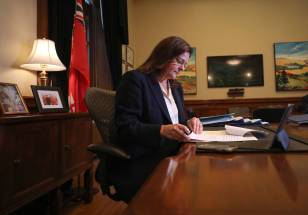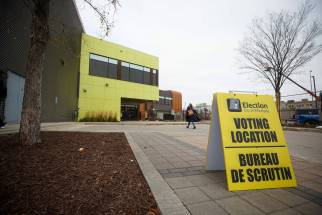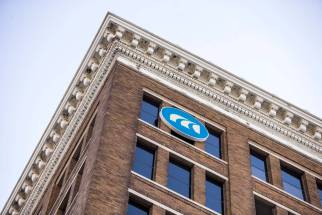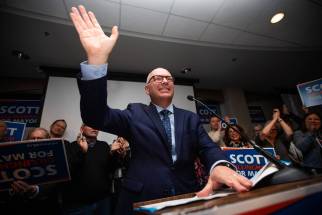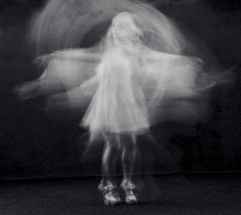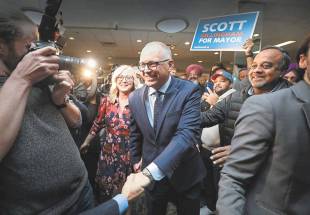Tories seek to quietly lock Autopac rebates in garage
Read this article for free:
or
Already have an account? Log in here »
To continue reading, please subscribe:
Monthly Digital Subscription
$0 for the first 4 weeks*
- Enjoy unlimited reading on winnipegfreepress.com
- Read the E-Edition, our digital replica newspaper
- Access News Break, our award-winning app
- Play interactive puzzles
*No charge for 4 weeks then price increases to the regular rate of $19.00 plus GST every four weeks. Offer available to new and qualified returning subscribers only. Cancel any time.
Monthly Digital Subscription
$4.75/week*
- Enjoy unlimited reading on winnipegfreepress.com
- Read the E-Edition, our digital replica newspaper
- Access News Break, our award-winning app
- Play interactive puzzles
*Billed as $19 plus GST every four weeks. Cancel any time.
To continue reading, please subscribe:
Add Free Press access to your Brandon Sun subscription for only an additional
$1 for the first 4 weeks*
*Your next subscription payment will increase by $1.00 and you will be charged $16.99 plus GST for four weeks. After four weeks, your payment will increase to $23.99 plus GST every four weeks.
Read unlimited articles for free today:
or
Already have an account? Log in here »
Hey there, time traveller!
This article was published 28/10/2022 (1135 days ago), so information in it may no longer be current.
Is this the end of the Autopac rebate?
Over the past two years, Manitobans have gratefully welcomed the return of hundreds of millions of dollars in excess revenue from Manitoba Public Insurance. This year alone, vehicle owners received $312 million in rebate cheques.
However, for reasons not yet clear, the Progressive Conservative government has introduced legislative amendments that could significantly reduce future cash rebates.
It did it in a rather stealthy fashion.
The measures were included deep within the fine print of the Budget Implementation and Tax Statutes Amendment Act (BITSA), which was only tabled Oct. 13. It’s an omnibus bill, which means the government has the authority to incorporate legislative changes unrelated to the budget.
The amendments allow MPI to retain hundreds of millions of additional dollars more in reserve accounts than currently permitted without having to seek the approval of the Public Utilities Board, Manitoba’s independent regulator.
MIKAELA MACKENZIE / WINNIPEG FREE PRESS FILES The Budget Implementation and Tax Statutes Amendment Act (BITSA) will give Manitoba Public Insurance sole authority to decide when or if any future rebates are issued. 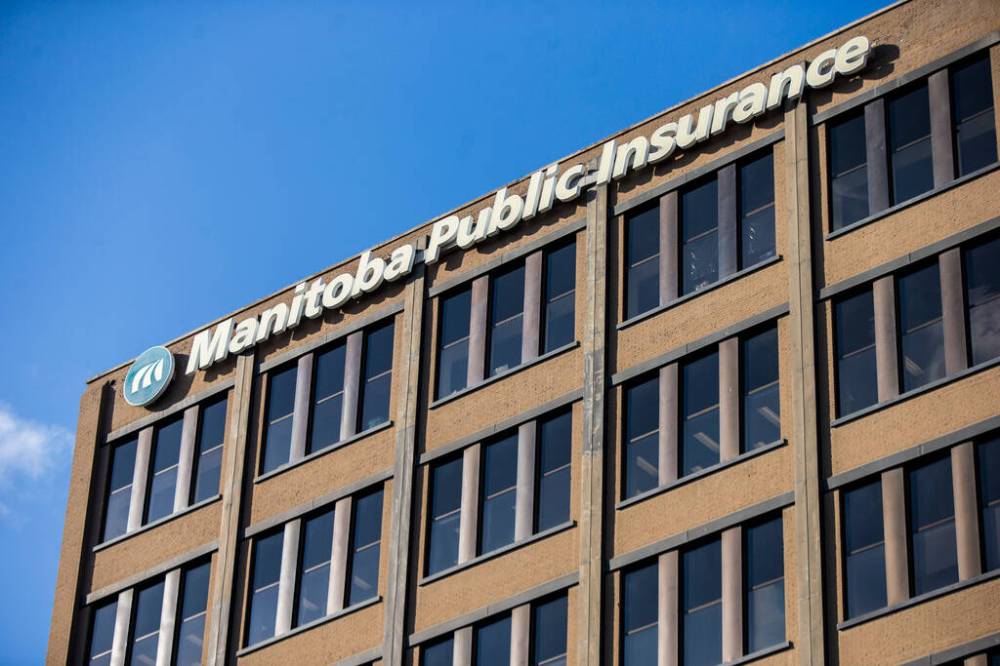
The amendments will also prevent the PUB from ordering the Crown corporation to rebate money to vehicle owners.
When BITSA is passed, MPI will have sole authority to decide when or if any future rebates are issued.
According to Peggy Barker, spokeswoman for the Consumers Coalition of Manitoba — an umbrella group representing the Consumers Association of Canada (Manitoba), Aboriginal Council of Winnipeg and Manitoba Harvest — the legislative changes represent yet another effort by the PCs to undermine the authority of the independent PUB.
“We are deeply disappointed,” said Barker, a director with the Consumers Association. “The PUB is essential to ensuring fairness in rate setting — and we’re concerned any time we see that weakened. The PUB has done such a good job in the past of ensuring fairness in rates.”
Efforts by the PC government to meddle with regulation of Autopac rates and rebates is doubly unusual when you consider the controversy over Bill 36.
“We are deeply disappointed.”–Peggy Barker, spokeswoman for the Consumers Coalition of Manitoba
The Tories are fighting a full-fledged political brush fire over Bill 36, a bill that would require Manitoba Hydro to amass billions of dollars of additional reserve capital while also dramatically reducing the PUB’s role in scrutinizing hydro rates.
Critics — including coalition and the Manitoba Industrial Power Users Group — have accused the government of undermining faith in Manitoba’s entire regulatory system.
The firestorm over Bill 36 could explain why the Tories chose BITSA to deliver changes to MPI reserve requirements and rebate setting.
MIKE DEAL / WINNIPEG FREE PRESS FILES Wab Kinew, Leader of the Opposition NDP.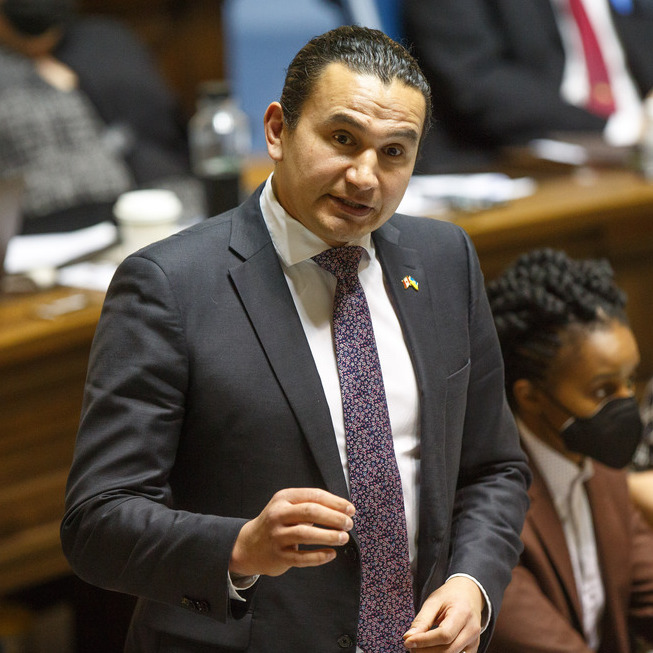
Manitoba NDP Leader Wab Kinew said he is mystified about why the Tories would want to do anything to limit or eliminate Autopac rebates, when so many people are struggling under the strain of high inflation.
“These changes mean little or no rebates in the future,” Kinew said “Given the cost of living right now, the timing could not be worse.”
In an emailed statement, Finance Minister Cameron Friesen claimed the amendments were introduced “in response to a recommendation” from the PUB to establish a Minimum Capital Test target.
“With the inclusion in BITSA, further progress has been made on government’s mandate… to modernize insurance regulations, legislation, policies and procedures with the goal of achieving better value for ratepayers.”
Friesen’s response was rejected by the intervenors.
MIKE DEAL / WINNIPEG FREE PRESS FILES Cameron Friesen, Minister of Finance.
Barker said the minister’s statement “did not represent” the PUB position on reserve targets. Rather than supporting new reserve targets in the amendments, the PUB promised to to do a detailed review of the reserve targets and never “offered to surrender its authority to consider appropriate financial targets in determining just and reasonable rates.”
Even with its assertion this will achieve better value, the PC government will still have trouble explaining why it chose to use BITSA to make such important changes to MPI legislation. At first blush, it appears to be politically cynical.
Although BITSA is introduced in the legislature like other bills, it is not subjected to public hearings. In the case of Bill 36, more than 40 Manitobans made presentations at committee on their concerns about the erosion of the PUB’s ability to oversee hydro rate applications.
BITSA is subject to debate between ministers and opposition critics in the budget estimates process. But the public will have no say.
Nor, it seems, will the PUB.
BITSA is subject to debate between ministers and opposition critics in the budget estimates process. But the public will have no say.
In the past, all MPI financial matters were thoroughly scrutinized by the PUB at annual rate application hearings. This process allowed intervenors — special interest groups impacted by Autopac rates — to bring in their own experts to examine MPI’s books and stress test any requests for increased rates.
Currently, the PUB has final say over how much money MPI can retain as reserves, rates and rebates. In the years since it got legislative oversight over the Crown auto insurer, the PUB has stopped MPI from raising Autopac rates in some years, and forced it to rebate excess revenues to vehicle owners in others.
The amendments included in BITSA mean rebates would only happen if MPI applies for one to be issued.
If it doesn’t apply for a rebate, the PUB will be powerless to do anything.
However, in defence of Bill 36, the Tories have made it clear they find the PUB process to be expensive and cumbersome. Premier Heather Stefanson has repeatedly defended Bill 36 as a reasonable tweak to the regulatory system that will relieve Hydro of millions of dollars in annual costs related to PUB hearings.
At the PUB, Hydro, as the applicant, must cover the costs of the regulator and intervenors.
Those intervenors, however, have argued it’s money well-spent. Their submissions show the total cost of the hearings is a fraction of the total savings provided to Hydro customers in the form of lower rates.
dan.lett@freepress.mb.ca

Born and raised in and around Toronto, Dan Lett came to Winnipeg in 1986, less than a year out of journalism school with a lifelong dream to be a newspaper reporter.
Our newsroom depends on a growing audience of readers to power our journalism. If you are not a paid reader, please consider becoming a subscriber.
Our newsroom depends on its audience of readers to power our journalism. Thank you for your support.


